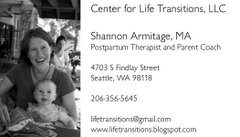Friday, February 16, 2007
Unicef Study Finds American Children At Risk
A 2007 study by Unicef finds that children in the U.S. are at much greater risk for poverty-related threats to well-being than children in 20 other wealthy nations. The study looked at six dimensions of children's lives: material well-being, healthy and safety, education, family/peer relationships, subjective well-being, and risk behaviors. Out of the 21 countries surveyed, the US placed 20th, narrowly beating out the UK for the dubious honor of last place. The results are startling, to be sure. But what caught my attention was how poorly American children did on measures of family and peer relationships. The US has more children living in single-parent families and in step-parent families than in any other country surveyed. Now, let me say that the presence of two biological or adoptive parents is not necessarily an indicator of health; however, research has shown a corelation between single-parent households and increased rates of poverty, unemployment, school drop-outs, and poor health. While not included in this study, there is other research that suggests one of the greatest "risk" factors to a couple's ability to stay together is children. So here's what we know: kids do better when they have two consistent parents in their lives, and couples are less likely to stay together once they have kids. Thus, we could improve children's outcomes by investing more in their parents' relationships. Let's hope that this study is a wake-up call for American society to change its priorities and invest more in children and the people who care for them.
Subscribe to:
Post Comments (Atom)

No comments:
Post a Comment